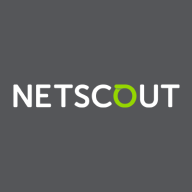

NETSCOUT nGeniusONE and Datadog compete in network and application performance management. While NETSCOUT leads with its comprehensive network visibility, Datadog offers superior ease of use and feature integration for cloud environments.
Features: NETSCOUT nGeniusONE provides deep packet analysis, NetFlow traffic analysis, and comprehensive network visibility. Its ability to quickly identify network issues makes it highly valuable. Datadog offers strong cloud infrastructure monitoring, an extensive range of integrations, and powerful dashboarding and alerting features that enhance user experience across cloud environments.
Room for Improvement: NETSCOUT nGeniusONE could enhance user-friendliness and improve its graphical interface to lower the dependency on experts. Its integration capabilities also need development. Datadog could benefit from clearer feature navigation and improved cost management tools. Users expect more advanced integrations and refined log filtering capabilities.
Ease of Deployment and Customer Service: NETSCOUT nGeniusONE is typically on-premises, requiring expert support due to its complexity, while providing personalized customer service. Datadog, compatible with public, private, and hybrid clouds, offers simpler deployment and robust customer service. However, cost and scaling support could be issues for some users.
Pricing and ROI: NETSCOUT nGeniusONE is expensive, potentially limiting its accessibility to smaller enterprises despite offering significant ROI in troubleshooting and network visibility. Its pricing inflexibility is noted. Datadog's usage-based pricing requires careful cost monitoring to prevent unexpected charges, though it is generally considered competitive. Both solutions promise improved visibility and uptime, catering to different organizational needs.
The distributor's support is rated an eight out of ten, indicating room for improvement in SLA handling.
They need to work on their response time and overall competence.
I am actually happy with technical support from NETSCOUT.
It is not similar to software solutions Datadog or Dynatrace where they can easily add agents without problems.
The solution is highly scalable and accommodates the growth needs effectively.
Customers are more sensitive about NETSCOUT nGeniusONE's upgrades because it has hardware.
I rate the stability of NETSCOUT nGeniusONE as ten out of ten since we have not experienced any escalations or downtime issues from the end user's side.
Datadog is more stable than NETSCOUT nGeniusONE, being a SaaS-based solution compared to on-prem solutions like NETSCOUT.
The documentation is adequate, but team members coming into a project could benefit from more guided, interactive tutorials, ideally leveraging real-world data.
There should be a clearer view of the expenses.
Many big companies Samsung and Hyundai try to build their own monitoring solutions using open-source tools and their own engineers, though it has not been successful.
It would be beneficial to see more AI capabilities included in nGeniusONE to further streamline processes.
Customers want to have service assurance, including NPM and APM, from one vendor.
The setup cost for Datadog is more than $100.
The cost depends on the size of the customer, as sizing controls the pricing.
Our architecture is written in several languages, and one area where Datadog particularly shines is in providing first-class support for a multitude of programming languages.
The technology itself is generally very useful.
The capability of real-time traffic intelligence is also very useful because it allows for the comparison between real-time and historical packet levels.
NETSCOUT is focusing on network monitoring, specifically packet analysis, which sets them apart.


Datadog is a comprehensive cloud monitoring platform designed to track performance, availability, and log aggregation for cloud resources like AWS, ECS, and Kubernetes. It offers robust tools for creating dashboards, observing user behavior, alerting, telemetry, security monitoring, and synthetic testing.
Datadog supports full observability across cloud providers and environments, enabling troubleshooting, error detection, and performance analysis to maintain system reliability. It offers detailed visualization of servers, integrates seamlessly with cloud providers like AWS, and provides powerful out-of-the-box dashboards and log analytics. Despite its strengths, users often note the need for better integration with other solutions and improved application-level insights. Common challenges include a complex pricing model, setup difficulties, and navigation issues. Users frequently mention the need for clearer documentation, faster loading times, enhanced error traceability, and better log management.
What are the key features of Datadog?
What benefits and ROI should users look for in reviews?
Datadog is implemented across different industries, from tech companies monitoring cloud applications to finance sectors ensuring transactional systems' performance. E-commerce platforms use Datadog to track and visualize user behavior and system health, while healthcare organizations utilize it for maintaining secure, compliant environments. Every implementation assists teams in customizing monitoring solutions specific to their industry's requirements.
We monitor all Network Monitoring Software reviews to prevent fraudulent reviews and keep review quality high. We do not post reviews by company employees or direct competitors. We validate each review for authenticity via cross-reference with LinkedIn, and personal follow-up with the reviewer when necessary.